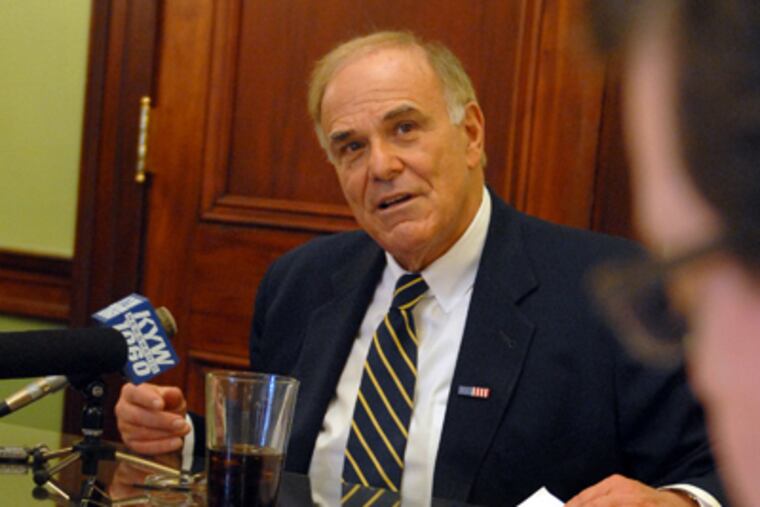Rendell assails proposed school-voucher plan
Gov. Rendell urged his successor Tuesday to not cut education spending in the state's next budget, and came out against a proposed voucher program that would help low-income students from low-performing schools attend either private schools or public schools in other districts.

Gov. Rendell urged his successor Tuesday to not cut education spending in the state's next budget, and came out against a proposed voucher program that would help low-income students from low-performing schools attend either private schools or public schools in other districts.
After touting Pennsylvania's top-10 national ranking in a report released Tuesday by Education Week, Rendell said at a news conference that there were "going to have to be [state budget] cuts next year, and those cuts are going to be painful."
Rendell - who made a point of increasing the state's funding of basic education in each of his eight years as governor - conceded that the state's multibillion-dollar budget gap makes that impossible this year. But he called on Gov.-elect Tom Corbett "at least to hold education harmless."
He added: "Our investments in education have paid off big-time for Pennsylvania."
Asked for reaction to Rendell's plea, Corbett spokesman Kevin Harley said, "Every department will be looked at for cost savings, including the Department of Education." Corbett is to be sworn in Tuesday.
Earlier in the day, State Sens. Anthony Hardy Williams (D., Phila.) and Jeffrey E. Piccola (R., Dauphin) announced details of legislation they planned to introduce that would give poor students attending the lowest-performing 144 schools in the state money they could use on private-school tuition or to pay tuition to a public school in another district.
A list of low-performing schools the legislators released included 89 in Philadelphia and 10 in Delaware County.
The legislation would allow the allocation that districts get from the state for each student to be spent on vouchers instead. Using the latest available figures, that would mean Philadelphia vouchers would be for $7,142, with amounts in other districts varying, depending on such factors as a district's wealth and its number of low-income students.
Rendell said of the Piccola-Williams proposal: "I think that would be a mistake." He said Pennsylvania's 144 charter schools were providing "significant options" for parents dissatisfied with regular public schools and must "operate under the rules of the public school system." Private schools, he said, could opt to turn away students with vouchers, while charters must accept all children who apply, if there is room.
Harley said Corbett supported the concept of the senators' proposal. The governor-elect, the aide said, "is a very strong proponent of charter schools as well as school choice. If a school is not providing an adequate education, the money should follow the students."
Harley added that Corbett "believes it should be the students first, parents second, and teachers third. Today, the educational establishment has put teachers first and students third."